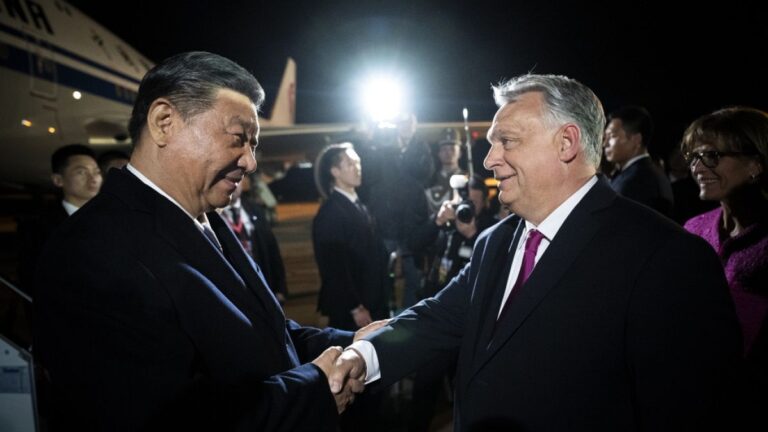The Chinese leader is expected to solidify several agreements with Hungarian Prime Minister Viktor Orban, further cementing Beijing’s economic presence in the region.
advertisement
Chinese President Xi Jinping arrived in Hungary on Wednesday, concluding a five-day European tour.
The visit will strengthen a number of agreements with Prime Minister Viktor Orban and further strengthen China’s economic influence in the region.
This contrasts with the stance of other EU countries, who are seeking to reduce their reliance on the world’s second-largest economy.
While in Paris, French President Emmanuel Macron and European Commission President Ursula von der Leyen urged Xi to promote more balanced trade with Europe and use his influence over Russia to address the conflict in Ukraine.
Xi is due to stay in Budapest for two nights and will meet with Prime Minister Orban and Hungarian President Tamas Sulyok to discuss potential Chinese investment in Hungary.
Despite mainstream European leaders’ defensive stance against China, Budapest has been actively pursuing economic ties with Beijing. China has offered to cooperate with Hungary in the areas of security and law enforcement, as well as trade and investment, according to a report by the state-run Xinhua News Agency.
Orban, known for his nationalist populist politics, has positioned Hungary as the first EU country to join President Xi Jinping’s Belt and Road Initiative.
Observers say Budapest’s diplomatic and trade ties with authoritarian regimes outside the EU and NATO underscore its balancing act between regional alliances and economic partnerships.
Ahead of Xi’s visit, Hungarian Foreign Minister Szijjártó announced plans to sign at least 16 bilateral agreements, highlighting the historic significance of Xi’s first visit to Hungary as a national president.
The deal could include an expansion of the Belt and Road initiative, which could also include investments in infrastructure and energy.
Szijjártó noted that China will be Hungary’s largest foreign investor in 2023.
Xi arrived in Budapest following a visit to Belgrade, where he signed an agreement highlighting a “shared future” with Serbia, another country considered friendly to Russia.
China claims neutrality in the Ukraine conflict but has faced criticism over what it sees as Russia’s strengthening military power and has refrained from calling Russian actions an aggression.
Hungary has condemned the invasion but has resisted EU sanctions against Moscow and has refrained from providing military support to Kiev.
Given Hungary’s proximity to conflict zones, Xi and Orban are expected to discuss the Ukraine crisis.
Hungary supports the peace plan proposed by China and called for China to play a leading role in promoting peace talks between Russia and Ukraine.

